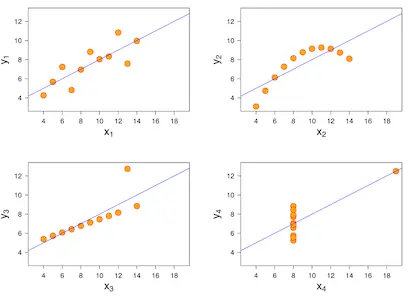Depressive Realism: Depressed people have a more accurate view of the world because they’re more realistic about how risky and fragile life is. The opposite of “blissfully unaware.”
抑郁现实主义:抑郁的人对世界有更准确的看法,因为他们对生活的风险和脆弱性更加现实。与「幸福无知」相反。
Skill Compensation: People who are exceptionally good at one thing tend to be exceptionally poor at another.
技能补偿:在某一方面非常擅长的人往往在另一方面非常差劲。
Curse of Knowledge: The inability to communicate your ideas because you wrongly assume others have the necessary background to understand what you’re talking about.
知识的诅咒:由于错误地假设他人具备必要的背景知识来理解你所说的内容,导致无法有效传达自己的想法。
Base Rates: The success rate of everyone who’s done what you’re about to try.
基本利率:每个尝试过你即将尝试的事情的人的成功率。
Base-Rate Neglect: Assuming the success rate of everyone who’s done what you’re about to try doesn’t apply to you, caused by overestimating the extent to which you do things differently than everyone else.
基本率忽视:假设每个尝试你即将尝试的事情的人的成功率不适用于你,这是因为过高估计你与其他人的不同程度。
Compassion Fade: People have more compassion for small groups of victims than larger groups, because the smaller the group the easier it is to identify individual victims.
同情减退:人们对小规模受害者群体比大规模受害者群体更有同情心,因为小规模群体中的个体受害者更容易被辨认出来。
System Justification Theory: Inefficient systems will be defended and maintained if they serve the needs of people who benefit from them – individual incentives can sustain systemic stupidity.
系统合理化理论:如果低效的系统能够满足从中受益的人的需求,那么这些人将会为其辩护和维护 - 个人激励可以维持系统的愚蠢。
Three Men Make a Tiger: People will believe anything if enough people tell them it’s true. It comes from a Chinese proverb that if one person tells you there’s a tiger roaming around your neighborhood, you can assume they’re lying. If two people tell you, you begin to wonder. If three say it’s true, you’re convinced there’s a tiger in your neighborhood and you panic.
三人成虎:如果足够多的人告诉一个人某件事是真的,那个人就会相信。这源自一个中国谚语,如果有一个人告诉你在你的社区里有一只老虎在游荡,你可以假设他们在撒谎。如果有两个人告诉你,你会开始怀疑。如果有三个人说是真的,你就会相信在你的社区里有一只老虎,并且恐慌。
Buridan’s Ass: A thirsty donkey is placed exactly midway between two pails of water. It dies because it can’t make a rational decision about which one to choose. A form of decision paralysis.
布里丹的驴子:一只口渴的驴子被放置在两个水桶的正中间。它因为无法做出理性决策而死亡,无法决定选择哪一个。这是一种决策瘫痪的形式。
Pareto Principle: The majority of outcomes are driven by a minority of events.
帕累托法则:大部分结果由少数事件驱动。
Sturgeon’s Law: “90% of everything is crap.” The obvious inverse of the Pareto Principle, but hard to accept in practice.
斯特金定律:「一切事物中有 90%都是垃圾。」这是帕累托法则的明显反面,但在实践中很难接受。
Cumulative advantage: Social status snowballs in either direction because people like associating with successful people, so doors are opened for them, and avoid associating with unsuccessful people, for whom doors are closed.
累积优势:社会地位在任何方向上都会滚雪球,因为人们喜欢与成功的人交往,所以他们的机会被打开,而避免与不成功的人交往,他们的机会被关闭。
Impostor Syndrome: Fear of being exposed as less talented than people think you are, often because talent is owed to cumulative advantage rather than actual effort or skill.
冒名者综合症:害怕被揭露出比人们认为的才华更低,通常是因为才华是由累积优势而非实际努力或技能所致。
Anscombe’s Quartet: Four sets of numbers that look identical on paper (mean average, variance, correlation, etc.) but look completely different when graphed. Describes a situation where exact calculations don’t offer a good representation of how the world works.
安斯康姆四重奏:四组数字在纸上看起来相同(平均数、方差、相关性等),但在绘制图表时完全不同。描述了一种情况,即精确计算不能很好地表示世界运作的方式。

